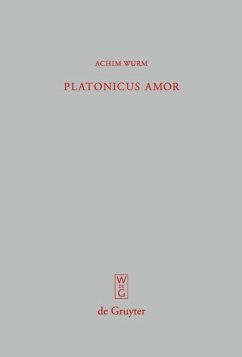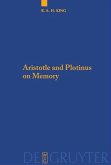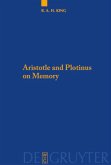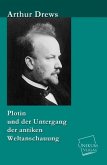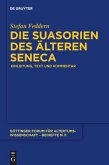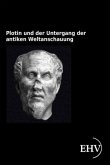This analysis of the historical understanding of Marsilio Ficinoâ??s commentary on Platoâ??s Symposium sets it in relationship to the philosophical interpretation of Eros in Plato and Plotinus, while at the same time providing a multi-faceted description of the place of Ficinoâ??s philosophy in the intellectual and spiritual development of the Italian Renaissance. The particular role of Ficinoâ??s commentary on Platoâ??s Symposium, De amore, within the context of the discourse of love as discussed in vernacular languages in 15th-century Florence is considered, and well as opening up Ficino to further interpretation.
Im Mittelpunkt dieser historisch-hermeneutischen Studie steht Marsilio Ficinos 1469 veröffentlichter Symposion-Kommentar De amore, der als Synthese des ficinianischen Platonismus bezeichnet werden kann und zugleich als Grundtext der Liebestheorie der europäischen Renaissance. Der Frage nach den Intentionen Platons im Symposion wird ebenso große Bedeutung eingeräumt wie der Wendung, welche die philosophische Figur des Eros in Plotins Enneade III 5 nimmt, auf die Ficino rekurriert. Dabei werden auch und gerade die Differenzen benannt, die Ficinos Platonismus von Platon trennen. Ficinos Version des Platonismus, wie er sie in De amore entwickelt, gewinnt beispielsweise in seinem an Lukrez anknüpfenden Interesse für naturphilosophische Fragen der Liebestheorie Gestalt, das selbst wiederum als Antwort auf die Fragen zu begreifen ist, die der volkssprachliche Diskurs über die Liebe dem Ausleger des Symposion vorgaben. Dass Ficinos Kommentar gerade auf diesen Wissensdiskurs der Laienals Rezeptionskontext zielt, kann an zahlreichen Einzelbeobachtungen belegt und interpretatorisch fruchtbar gemacht werden. Ein detailreiches Stück Humanismusforschung und zugleich ein origineller Beitrag zu einer Geschichte der Liebe in philosophischer Hinsicht.
Im Mittelpunkt dieser historisch-hermeneutischen Studie steht Marsilio Ficinos 1469 veröffentlichter Symposion-Kommentar De amore, der als Synthese des ficinianischen Platonismus bezeichnet werden kann und zugleich als Grundtext der Liebestheorie der europäischen Renaissance. Der Frage nach den Intentionen Platons im Symposion wird ebenso große Bedeutung eingeräumt wie der Wendung, welche die philosophische Figur des Eros in Plotins Enneade III 5 nimmt, auf die Ficino rekurriert. Dabei werden auch und gerade die Differenzen benannt, die Ficinos Platonismus von Platon trennen. Ficinos Version des Platonismus, wie er sie in De amore entwickelt, gewinnt beispielsweise in seinem an Lukrez anknüpfenden Interesse für naturphilosophische Fragen der Liebestheorie Gestalt, das selbst wiederum als Antwort auf die Fragen zu begreifen ist, die der volkssprachliche Diskurs über die Liebe dem Ausleger des Symposion vorgaben. Dass Ficinos Kommentar gerade auf diesen Wissensdiskurs der Laienals Rezeptionskontext zielt, kann an zahlreichen Einzelbeobachtungen belegt und interpretatorisch fruchtbar gemacht werden. Ein detailreiches Stück Humanismusforschung und zugleich ein origineller Beitrag zu einer Geschichte der Liebe in philosophischer Hinsicht.

